CMR vs SMR: Which Hard Drive Technology Is The Best For You

I think there's an issue with my storage device, but I'm not sure
Start a free evaluationCMR and SMR are methods to store data on hard drives. Each one has a significant part in the storage device performance. SMR stands for Shingled Magnetic Recording, while CMR stands for Conventional Magnetic Recording.SMR is a relatively new technology that some of the leading manufacturers of hard drives, such as Western Digital and Seagate, have introduced. CMR is an old technology that was first used in the early 90s by many hard drive manufacturers, such as Maxtor and Quantum (now known as Hitachi).Choosing which technology to use on your HDD is one step that can prevent you from making the wrong investment.But not always the manufacturer adds this information to the driver’s description. Inquire about this information so you can have the best data storage device for your purpose.
Top Summary: The best way to decide if you should use CMR or SMR is to know their differences and apply them to your needs. No technology is perfect, but there is one most suitable for each user’s needs.
Top differences: SMR vs CMR
Both SMR and CMR technologies have their pros and cons, meaning that to choose between them, you need to have a goal and match the technology that best fulfills it.
Speed - CMR
For speed, CMR is the clear winner. It stores data in separate tracks on a CMR hard drive, which allows for much higher data densities. This results in faster data transfer rates and shorter access times. In contrast, data on an SMR hard drive is stored in overlapping tracks. This means that it can have more data stored in an area, but it also slows down data transfer rates and increases access times.
Reliability - SMR
SMR drives are more reliable than CMR drives. Since it stores data in overlapping tracks, there is a lower risk of interruption when reading or writing data. In comparison, this might be an issue with CMR hard drives where the magnetic head can easily hit the edge of the disk and cause damage to it and interrupt the process. This increased reliability is one of the main reasons SMR technology has become popular among enterprise users who require high levels of data integrity and uptime.
Price - CMR
If you have a limited budget and price is a big aspect of your decision, the CMR is at the top of your choice list.SMRs are more expensive than CMR, since they have different manufacturing costs.
Storage capability - SMR
SMR hard drive stores the data in overlapping tracks. This increases the real density of the disk - the amount of data that can be stored in an area. In contrast, it can easily decrease speed and overflow the cache as you constantly write and rewrite it.
Writing Performance - CMR
With constant writing and rewriting, SMR can have cache overflow. Meanwhile, CMR supports large amounts of data transfer at a high speed. If you have to use constantly your drive or need to change data and access it fast, CMR is then your best choice.
Summary: The type of hard drive you should get - SMR or CMR, depends on your needs and what you’re going to use your drive for. If speed is important to you, then CMR is the better choice. However, if you need a hard drive with higher data capacity, then SMR might be the better option.
Hard Drives brands and models that are CMR or SMR
Which Hard Drives are CMR compatible and which are SMR compatible? Seagate, Toshiba, and WD hard drives have models for each technology. Here's a complete list that compiles the manufacturers, the HDD's models, and capacities in one place.[fusion_code]PGRpdiBjbGFzcz0ic2xpZGluZy10YWJsZSI+CiAgPHRhYmxlIGNsYXNzPSJjb21wZXRpdG9ycy10YWJsZSI+Cjx0aGVhZD4KPHRyPgogICAgICAgICAgPHRoPjxiPk1hbnVmYWN0dXJlcnM8L2I+PC90aD4KICAgICAgCTx0aD48Yj5DTVI8L2I+PC90aD4KICA8dGg+PGI+U01SPC9iPjwvdGg+CjwvdHI+CjwvdGhlYWQ+Cjx0Ym9keT4KICAgICAgICAgIDx0cj4KICAgICAgICAgIDx0ZD48Yj5XZXN0ZXJuIERpZ2l0YWwgKFdEKTwvYj48L3RkPgogICAgICAgICAgPHRkPkFWLUdQIFN1cnZlaWxsYW5jZTogMlRCLCAzVEI8YnI+CkJsYWNrOiAyNTBHQiwgMzIwR0IsIDUwMEdCLCAxVEIsIDJUQiwgM1RCLCA0VEIsIDVUQiwgNlRCLCA4VEIsIDEwVEI8YnI+CkJsdWU6IDMyMEdCLCA2NDBHQiwgNTAwR0IsIDFUQiwgMlRCLCAzVEIsIDRUQiwgNlRCLCA4VEI8YnI+CkRDIEhDNTIwOiAxMlRCPGJyPgpEQyBIQzU1MDogMlRCPGJyPgpFYXN5U3RvcmU6IDEwVEI8YnI+CkVsZW1lbnRzOiA4VEIsIDEwVEIsIDEyVEIsIDE0VEIsIDE2VEIsIDE4VEI8YnI+CkdvbGQ6IDFUQiwgMlRCLCA0VEIsIDZUQiwgOFRCLCAxMFRCLCAxMlRCLCAxNFRCLCAxNlRCLCAxOFRCLCAyMFRCPGJyPgpHcmVlbjogMVRCLCAxLjVUQiwgMlRCLCAzVEIsIDRUQiwgNVRCLCA2VEI8YnI+CkhDMzEwOiA0VEI8YnI+CkhDNTMwOiAxNFRCPGJyPgpNeUJvb2s6IDhUQiwgMTJUQiwgMTRUQiwgMThUQjxicj4KUHVycGxlOiAxVEIsIDJUQiwgM1RCLCA0VEIsIDZUQiwgOFRCLCAxMFRCLCAxMlRCLCAxNFRCLCAxOFRCPGJyPgpQdXJwbGUgUFJPOiA4VEI8YnI+ClJFOiAxVEIsIDJUQiwgNFRCLCA2VEI8YnI+ClJlZDogNzUwR0IsIDFUQiwgMlRCLCAzVEIsIDRUQiwgNVRCLCA2VEIsIDEwVEI8YnI+ClJlZCBQbHVzOiAxVEIsIDJUQiwgM1RCLCA0VEIsIDZUQiwgOFRCLCAxMFRCLCAxMlRCLCAxNFRCPGJyPgpSZWQgUFJPOiAyVEIsIDRUQiwgNlRCLCA4VEIsIDEwVEIsIDEyVEIsIDE0VEIsIDE2VEIsIDE4VEIsIDIwVEI8YnI+ClNFOiAzMjBHQiwgMlRCLCAzVEIsIDRUQjxicj4KU3VydmVpbGxhbmNlOiA0VEI8YnI+ClVsdHJhc3RhcjogNFRCLCA2VEIsIDhUQjxicj4KV2hpdGU6IDRUQiwgOFRCLCAxMFRCLCAxMlRCLCAxNFRCLCAxNlRCLCAxOFRCPGJyPjwvdGQ+CiAgICAgICAgICA8dGQ+QmxhY2s6IDUwMEdCLCAxVEI8YnI+CkJsdWU6IDkwMEdCLCAxVEIsIDJUQiwgM1RCLCA0VEIsIDZUQjxicj4KRWxlbWVudHM6IDFUQiwgMlRCLCA0VEI8YnI+Ck15IFBhc3Nwb3J0OiAxVEIsIDJUQiwgNFRCLCA1VEI8YnI+Ck15IFBhc3Nwb3J0IFVsdHJhOiA0VEI8YnI+Ck15Qm9vazogM1RCLCA0VEIsIDZUQjxicj4KUGFzc3BvcnQ6IDJUQiwgM1RCLCA0VEIsIDVUQjxicj4KUG9ydGFibGU6IDFUQiwgMlRCPGJyPgpSRTogM1RCPGJyPgpSZWQ6IDJUQiwgM1RCLCA0VEIsIDZUQjxicj4KV2hpdGU6IDZUQjxicj48L3RkPgo8L3RyPgogICAgICAgICAgPHRyPgogICAgICAgICAgPHRkPjxiPlRvc2hpYmE8L2I+PC90ZD4KICAgICAgICAgIDx0ZD5EVDAxOiAxVEIsIDJUQiwgM1RCPGJyPgpFbnRlcnByaXNlOiA0VEIsIDZUQiwgOFRCLCAxMlRCLCAxNFRCLCAxNlRCLCAxOFRCPGJyPgpFbnRlcnByaXNlIFgzMDA6IDZUQjxicj4KTUQwNDogNFRCPGJyPgpNRzAzOiA0VEI8YnI+Ck1HMDQ6IDRUQiwgNlRCPGJyPgpOMzAwOiA0VEIsIDZUQiwgOFRCLCAxMFRCLCAxNlRCPGJyPgpQMzAwOiAxVEIsIDJUQiwgM1RCLCA2VEIsPGJyPgpQZXJmb3JtYW5jZTogNlRCPGJyPgpTdXJ2ZWlsbGFuY2U6IDFUQiwgNFRCLCA4VEI8YnI+ClYzMDA6IDJUQjxicj4KV2hpdGU6IDUwMEdCPGJyPgp4MzAwOiA0VEIsIDVUQiwgNlRCLCA4VEIsIDEwVEIsIDEyVEIsIDE0VEI8YnI+PC90ZD4KICAgICAgICAgIDx0ZD5DYW52aW86IDJUQiwgM1RCLCA0VEI8YnI+CkRlc2t0b3A6IDJUQiwgNFRCLCA2VEI8YnI+CkRUMDI6IDRUQjxicj4KRTMwMDogMlRCPGJyPgpMMjAwOiAxVEIsIDJUQjxicj4KTVEwMTogMVRCPGJyPgpNUTAzOiAyVEIsIDNUQjxicj4KTVEwNDogMVRCLCAyVEI8YnI+Ck5vdGVib29rOiAxVEIsIDJUQjxicj4KUzMwMDogNlRCPGJyPgpTdXJ2ZWlsbGFuY2U6IDJUQiwgNFRCLCA2VEI8YnI+PC90ZD4KCjwvdHI+Cjx0cj4KICAgICAgICAgIDx0ZD48Yj5TZWFnYXRlPC9iPjwvdGQ+CiAgICAgICAgICA8dGQ+QmFycmFjdWRhOiAxVEIsIDJUQiwgNFRCPGJyPgpCYXJyYWN1ZGEgUFJPOiA0VEIsIDZUQiwgOFRCLCAxMFRCLCAxMlRCLCAxNFRCPGJyPgpDb25zdGVsbGF0aW9uOiAyVEIsIDFUQiwgM1RCLCAzVEIsIDZUQjxicj4KRGVza3RvcDogMlRCLCAzVEIsIDRUQiwgOFRCPGJyPgpEZXNrdG9wIFNTSEQ6IDRUQjxicj4KRW50ZXJwcmlzZSBDYXBhY2l0eSAzLjU6IDZUQjxicj4KRXhvczogMVRCLCAyVEIsIDIuNFRCLCA0VEIsIDZUQiwgOFRCLCAxMFRCLCAxMlRCLCAxNlRCLCAxOFRCLCAyMFRCPGJyPgpFeG9zIDdFODogMlRCLCA0VEIsIDZUQiwgOFRCPGJyPgpFeHBhbnNpb246IDEwIFRCLCAxNFRCPGJyPgpGaXJlY3VkYTogMVRCLCAyVEIsNFRCLCA4VEI8YnI+Cklyb253b2xmOiAxVEIsIDJUQiwgM1RCLCA0VEIsIDZUQiwgOFRCLCAxMFRCLCAxMlRCLCAxNFRCLCAxNlRCPGJyPgpJcm9ud29sZiBQUk86IDRUQiwgNlRCLCA4VEIsIDEwVEIsIDEyVEIsIDE0VEIsIDE2VEIsIDE4VEIsIDIwVEI8YnI+Ck5BUzogMlRCLCAzVEIsIDRUQiwgNlRCLCA4VEI8YnI+Ck9uZSBUb3VjaDogNVRCPGJyPgpTa3loYXdrOiAxVEIsIDJUQiwgM1RCLCA0VEIsIDZUQiwgOFRCLCAxMFRCPGJyPgpTa3loYXdrIEFJOiA4VEIsIDEwVEIsIDEyVEIsIDE0VEIsMTZUQiwgMThUQjxicj4KU3VydmVpbGxhbmNlOiAxVEIsIDJUQiwgM1RCLCA0VEIsIDVUQiwgNlRCLCA4VEI8YnI+ClNWMzUgU3VydmVpbGxhbmNlOiAxVEIsIDJUQiwgM1RCPGJyPgpUZXJhc2NhbGU6IDRUQjxicj48L3RkPgogICAgICAgICAgPHRkPkFyY2hpdmU6IDVUQiwgNlRCLCA4VEI8YnI+CkJhcnJhY3VkYTogNTAwR0IsIDFUQiwgMlRCLCAzVEIsIDRUQiwgNVRCLCA2VEIsIDhUQiwgMTBUQjxicj4KRGVza3RvcDogNVRCLCA4VEI8YnI+CkV4b3M6IDhUQjxicj4KRXhwYW5zaW9uOiAxVEIsIDRUQiwgNVRCLCA2VEIsIDhUQjxicj4KR2FtZSBEcml2ZTogMlRCLCA0VEI8YnI+Ck1vYmlsZTogMVRCLCAyVEI8YnI+Ck1vbWVudHVzOiAxVEI8YnI+ClNreWhhd2sgTGl0ZS9NaW5pOiAxVEIsIDJUQjxicj4KVWx0cmEgVG91Y2g6IDFUQjxicj48L3RkPgo8L3RyPgo8dHI+CiAgICAgICAgICA8dGQ+PGI+RGVsbDwvYj48L3RkPgogICAgICAgICAgPHRkPkVudGVycHJpc2U6IDhUQjwvdGQ+CiAgICAgICAgICA8dGQ+Ti9BPC90ZD4KPC90cj4KPHRyPgogICAgICAgICAgPHRkPjxiPlNhbXN1bmc8L2I+PC90ZD4KICAgICAgICAgIDx0ZD5FY29HcmVlbjogMVRCPC90ZD4KICAgICAgICAgIDx0ZD5OL0E8L3RkPgo8L3RyPgo8dHI+CiAgICAgICAgICA8dGQ+PGI+SGl0YWNoaSBHU1Q8L2I+PC90ZD4KICAgICAgICAgIDx0ZD5EZXNrc3RhciBOQVM6IDRUQjxicj4KVWx0cmFzdGFyOiA2MDBHQiwgMlRCLCA0VEIsMTJUQjxicj48L3RkPiAgCiAgIDx0ZD5UcmF2ZWxzdGFyOiA1MDBHQjwvdGQ+CjwvdHI+Cjx0cj4KICAgICAgICAgIDx0ZD48Yj5IZXdsZXR0IFBhY2thcmQgRW50ZXJwcmlzZSBIUEU8L2I+PC90ZD4KICAgICAgICAgIDx0ZD5NaWRsaW5lOiAzVEI8L3RkPgogICAgICAgICAgPHRkPk4vQTwvdGQ+CjwvdHI+Cjx0cj4KICAgICAgICAgIDx0ZD48Yj5MYUNpZTwvYj48L3RkPgogICAgICAgICAgPHRkPk4vQTwvdGQ+CiAgICAgICAgICA8dGQ+TW9iaWxlOiA1VEI8L3RkPgo8L3RyPgoKPC9ib2R5PgogIDwvdGFibGU+CjwvZGl2Pgo=[/fusion_code]When it comes to data storage, it is important to always have a data recovery plan. Keep regular backup of your important files to guarantee you can always have access to them. If anything happens to your data, contact one of the SalvageData experts that will promptly help you get your data back.
Related services
These are the most commonly requested data recovery services. At our headquarters' cleanroom lab, our certified engineers conduct a thorough review of any type of physical storage device, determining if there is logical or physical damage and carefully restoring all of the lost files.ces.
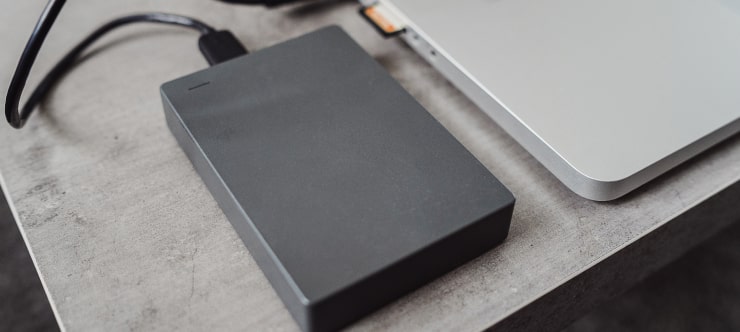
External Drive Data Recovery
We recover data from both external SSD and HDD drives. Rely on certified experts to restore your important files from damaged or corrupted external drives.
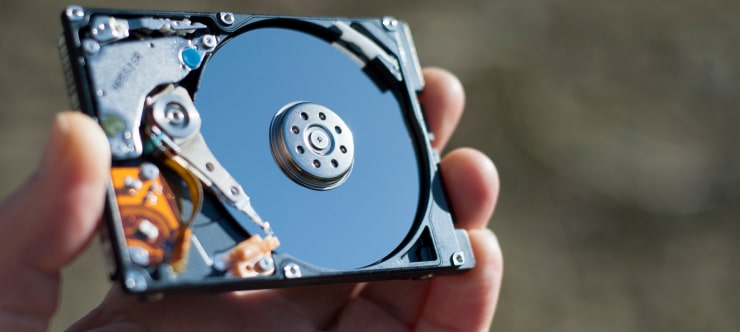
Hard Drive Data Recovery
Recover data from all brands of HDD, PC hard drives, and hybrid disks. Our specialists ensure fast and secure recovery for any data loss scenario.
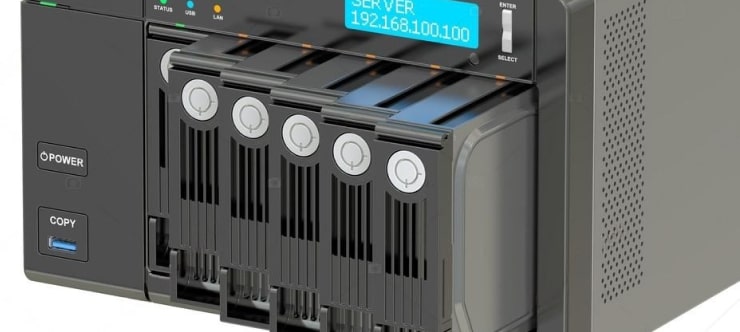
NAS Data Recovery
Recover data from NAS devices, including RAID configurations. Our team handles all types of NAS systems and ensures data recovery with minimal downtime.
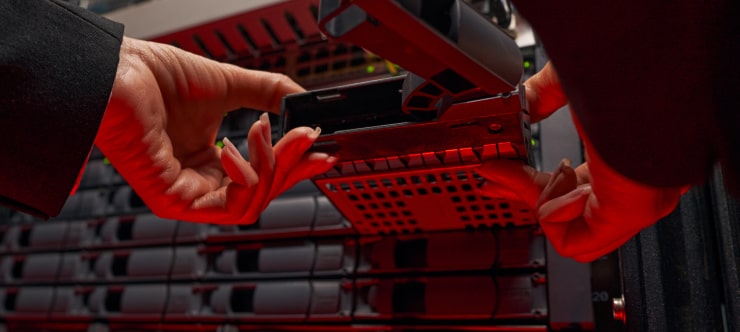
RAID Data Recovery
Our RAID data recovery services cover RAID 0, 1, 5, 10, and other configurations. We offer expert solutions for failed, degraded, or corrupted RAID arrays.
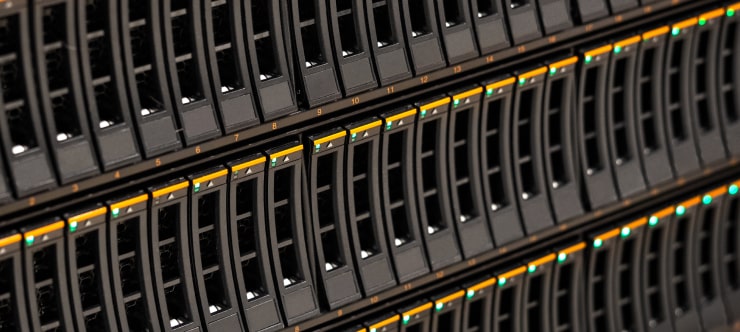
SAN Data Recovery
Our team specializes in handling SAN devices from leading manufacturers like Dell EMC, HP, and IBM, ensuring efficient recovery with minimal disruption to your operations.
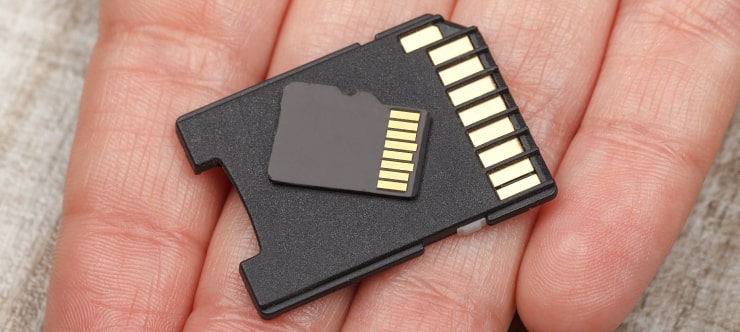
SD Card Data Recovery
Our recovery experts specialize in restoring data from SD and memory cards. We guarantee quick recovery with a no-data, no-charge policy.
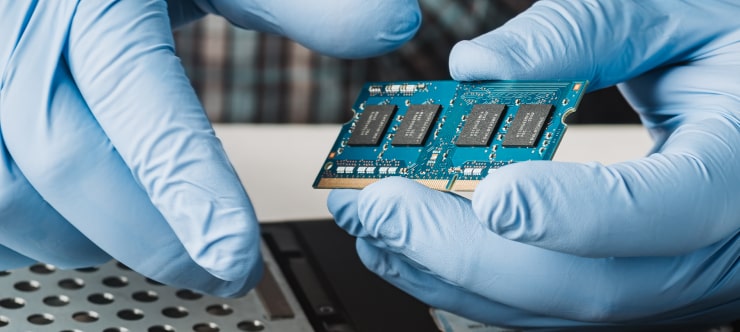
SSD Data Recovery
Our data recovery experts handle all SSD data loss scenarios with advanced tools, ensuring maximum recovery with high-security protocols.

USB Flash Drive Data Recovery
Recover lost data from USB flash drives, regardless of the damage or brand. We offer free in-lab evaluations to assess data recovery needs.
If you’re unsure about which data recovery service to choose, let our team assist you in selecting the appropriate solutions. We understand the anxiety that comes with a sudden drive failure, and we are more prompt in our actions compared to other recovery service providers.



